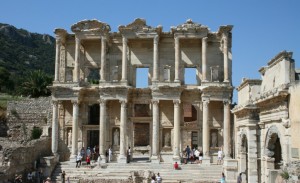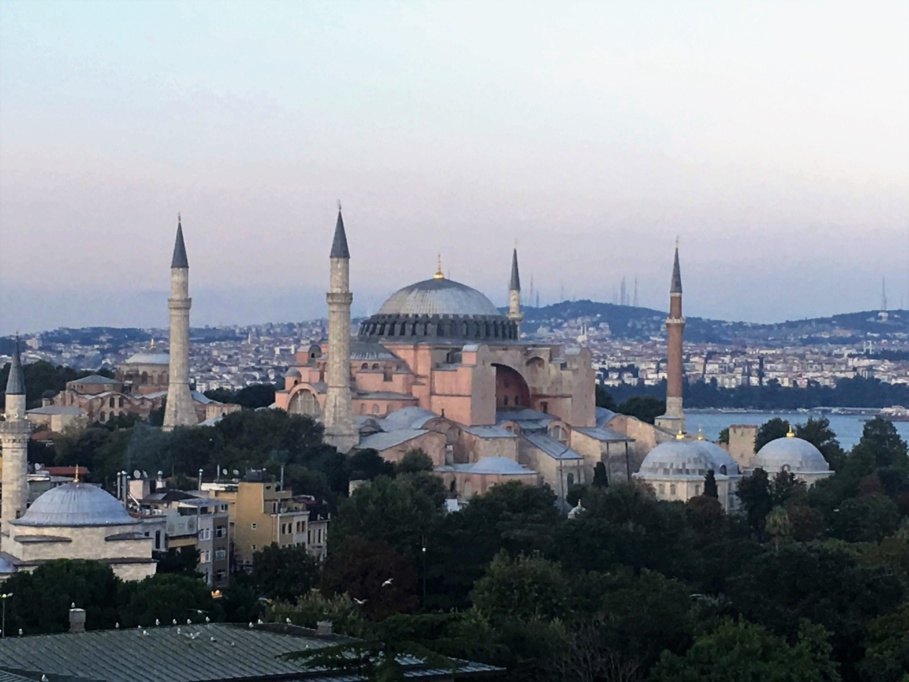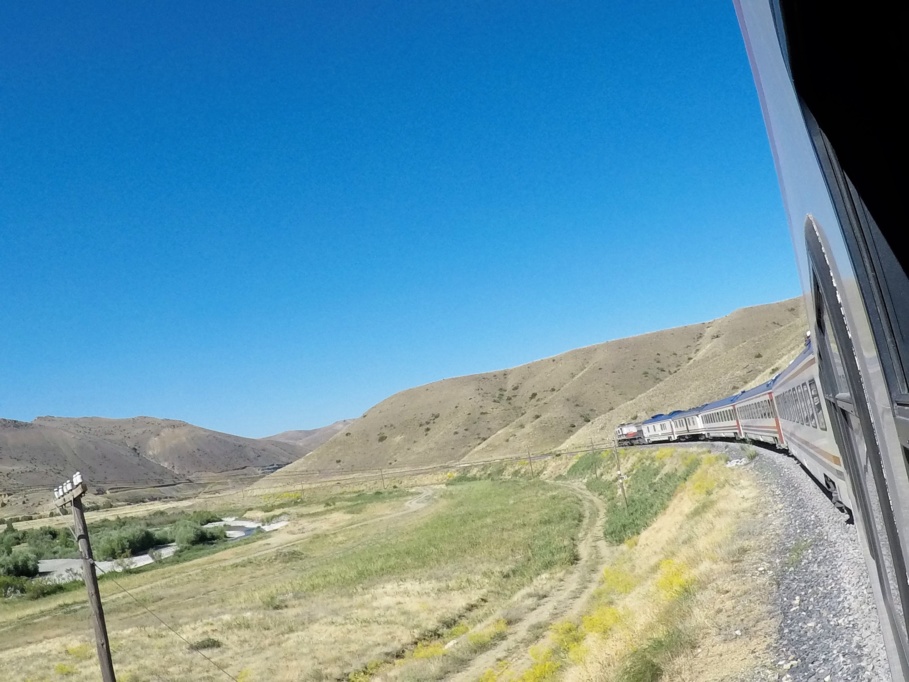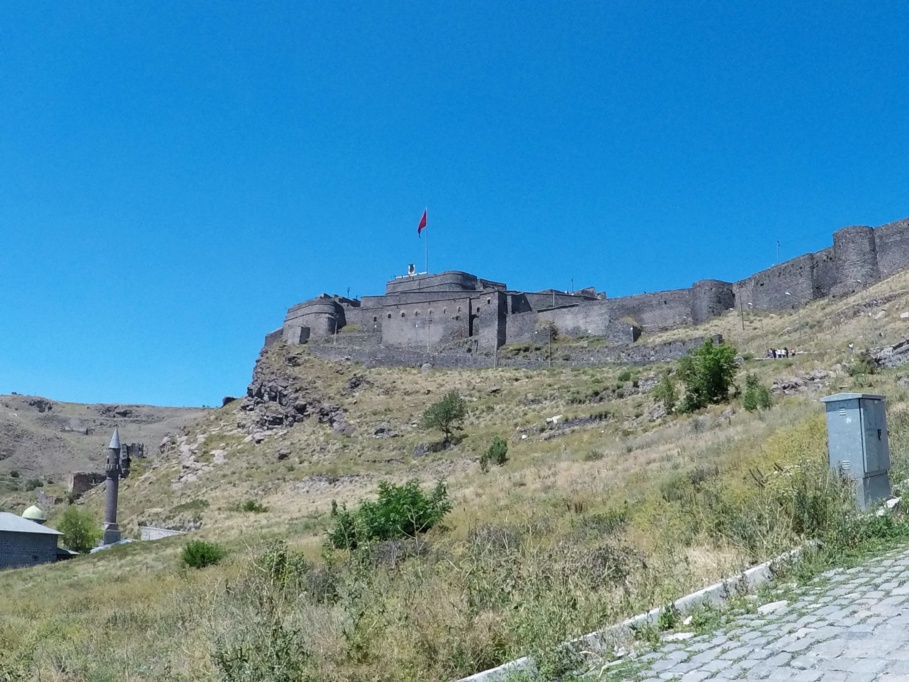TURKEY
TRAVEL GUIDE
How To Travel To Turkey
Turkey Travel Guide: Unveil the wonders of Turkey with our comprehensive Turkey Travel guide, highlighting the country’s rich history, diverse culture, and stunning landscapes. From the bustling bazaars of Istanbul and the ancient ruins of Ephesus to the thermal pools of Pamukkale and the pristine beaches of the Turquoise Coast, Turkey offers an unforgettable journey for every traveler. Discover top attractions, local cuisine, travel tips, and hidden gems in our guide to experiencing the best of this captivating and diverse nation.
Need To Know: How To Travel To Turkey
Turkey is a captivating blend of history, culture, and natural beauty. Explore ancient ruins, vibrant bazaars, and stunning landscapes from the beaches of Antalya to Cappadocia’s fairy chimneys. Indulge in rich cuisine, experience Turkish hospitality, and immerse yourself in a country where East meets West in a unique and unforgettable way.
Whether you need a visa to visit Turkey depends on your nationality. Many travelers can enter visa-free or with an e-Visa, while others require a consular visa. Check the Turkish Ministry of Foreign Affairs website for specific requirements. Always confirm before traveling to ensure a smooth entry process.
The currency of Turkey is the Turkish Lira (TRY). It is abbreviated as “₺” and used for all financial transactions across the country. The lira is divided into 100 kuruş. Visitors can exchange foreign currency at banks, exchange offices, or ATMs, which are widely available throughout Turkey.
Turkey is a budget-friendly destination, offering excellent value for travelers. Accommodation, food, and transportation are affordable, especially outside major tourist hubs like Istanbul. Street food, local markets, and public transit make exploring even cheaper. While prices can vary, Turkey’s blend of history, culture, and stunning landscapes suits most travel budgets.
Turkey is generally safe to travel to, with popular tourist areas like Istanbul, Cappadocia, and the Aegean coast welcoming millions annually. Exercise standard precautions, stay informed about local conditions, and avoid border regions near Syria and Iraq. Respect cultural norms, and you’ll enjoy a fascinating, memorable trip to this vibrant country.
Tap water in Turkey is generally safe for cleaning and cooking but not recommended for drinking due to its taste and possible contaminants. It’s best to drink bottled water, widely available and affordable. Hotels often provide complimentary bottled water, ensuring hydration while avoiding potential health risks.
The food of Turkey is a rich blend of Mediterranean, Middle Eastern, and Central Asian influences. Dishes like kebabs, mezes, and baklava showcase bold flavors. Staples include fresh vegetables, olive oil, yogurt, and spices like sumac and cumin. Iconic meals include hearty lentil soups, savory pide, and sweet Turkish delight.
Turkey Travel Guide : How To Travel To Turkey
Travel Guide Turkey: How to Travel to Turkey for an Unforgettable Experience
Turkey Travel Guide: Turkey, a captivating blend of East and West, is a top destination for travelers seeking history, culture, and stunning landscapes. In this comprehensive Travel Guide Turkey, we’ll explore the best ways to plan your visit, ensuring your trip is both enjoyable and memorable. Whether you’re wandering through ancient ruins, savoring the rich flavors of Turkish cuisine, or relaxing on pristine beaches, Turkey has something to offer every type of traveler. Here’s everything you need to know about how to travel to Turkey.
Travel Guide Turkey: How to Get to Turkey – Your Complete Guide
When planning your trip to Turkey, the first step is figuring out how to get there. The country is well-connected to major cities around the world, making it relatively easy to reach. For international travelers, the primary entry point is Istanbul Airport (IST), one of the busiest airports in the world. This modern hub serves as a gateway to Turkey, with direct flights from Europe, Asia, North America, and beyond, as detailed in any comprehensive Travel Guide Turkey.
In addition to Istanbul, other major cities like Ankara, the capital, and Antalya, a popular resort destination, also have international airports. These airports are serviced by several major airlines, offering numerous flight options. When researching how to travel to Turkey, it’s essential to compare flight prices, as they can vary significantly depending on the season. Booking in advance and being flexible with your travel dates can help you secure the best deals. This is an important consideration in any Travel Guide Turkey.
For those already in Europe, traveling to Turkey by land is another option. Many travelers choose to drive or take buses from neighboring countries such as Greece, Bulgaria, or Georgia. Trains are also available, with routes connecting Turkey to European cities like Sofia and Bucharest. While this option may take longer, it offers a scenic journey through beautiful landscapes and a more immersive travel experience, something often highlighted in a Travel Guide Turkey.
Once in Turkey, getting around is convenient, with a well-developed domestic flight network, extensive bus services, and an efficient train system. Domestic flights are often affordable and can save time when traveling between major cities. Buses, on the other hand, provide a budget-friendly option for reaching smaller towns and rural areas, as emphasized in any detailed Travel Guide Turkey.
Travel Guide Turkey: Best Time to Visit Turkey for Your Perfect Trip
Understanding the best time to visit is crucial when planning how to travel to Turkey. The country experiences diverse climates, from the Mediterranean warmth along the coast to the continental conditions in the interior. Your travel experience can vary significantly depending on the time of year you choose to visit, so it’s important to consult a Travel Guide Turkey.
The most popular time to visit Turkey is during the spring (April to June) and autumn (September to November). These seasons offer mild weather, making it ideal for exploring historical sites, hiking, and enjoying outdoor activities. Spring, in particular, is a beautiful time as the countryside blooms with flowers, and temperatures are pleasant across the country. If you plan to visit Turkey’s Mediterranean coast, these shoulder seasons provide perfect beach weather without the summer crowds. This timing is often recommended in a Travel Guide Turkey.
Summer (July and August) is the peak tourist season, especially in coastal areas like Antalya, Bodrum, and Izmir. While the weather is perfect for sunbathing and swimming, it can be scorching in inland areas like Cappadocia and Ankara. If you plan to visit during the summer, be prepared for higher prices and crowded attractions. Booking accommodations and tours in advance is recommended to avoid disappointment. These are key considerations in any Travel Guide Turkey.
Winter (December to February) is the off-season, but it offers a unique charm, especially in regions like Cappadocia and Eastern Turkey, where you can experience snow-covered landscapes and winter sports. Istanbul also has a different allure in winter, with fewer tourists and a more relaxed pace. However, some coastal resorts may close during this period, and ferry services can be limited due to weather conditions. This information is vital in a Travel Guide Turkey.
Travel Guide Turkey: Top Destinations to Explore in Turkey
Turkey is a vast country with a rich tapestry of destinations to explore. From ancient ruins to bustling cities, there’s no shortage of places to visit. When considering how to travel to Turkey, it’s essential to prioritize the destinations that align with your interests, as outlined in any thorough Travel Guide Turkey.
Istanbul, the country’s cultural and historical epicenter, is a must-visit. Straddling two continents, this city is a mesmerizing blend of old and new. Explore iconic landmarks like the Hagia Sophia, Blue Mosque, and Topkapi Palace. Stroll through the bustling Grand Bazaar, where you can shop for traditional crafts, spices, and textiles. The city’s vibrant nightlife and culinary scene add another layer of excitement to your visit, making it a highlight in any Travel Guide Turkey.
Cappadocia, with its surreal landscapes and fairy-tale chimneys, is another highlight. This region is famous for hot air balloon rides at sunrise, offering breathtaking views of the unique terrain. Underground cities and ancient cave churches add to the region’s mystical allure. It’s a destination that appeals to history buffs, nature lovers, and adventure seekers alike, as highlighted in every Travel Guide Turkey.
The Aegean and Mediterranean coasts boast some of Turkey’s most stunning beaches and resorts. Bodrum, Antalya, and Fethiye are popular choices for those seeking sun, sea, and relaxation. These areas also offer historical attractions like the ancient city of Ephesus and the ruins of Troy, allowing you to combine beach time with cultural exploration. This combination of experiences is frequently recommended in a Travel Guide Turkey.
For a deeper dive into Turkey’s history, visit the ancient ruins of Ephesus, Pergamon, and Hierapolis. These archaeological sites offer a glimpse into the country’s rich past, with well-preserved temples, theaters, and baths that date back to Roman and Hellenistic times. They are essential stops for any history enthusiast’s Travel Guide Turkey.
Travel Guide Turkey: Practical Tips for Traveling in Turkey
When planning how to travel to Turkey, it’s essential to consider a few practical tips to ensure a smooth and enjoyable journey. First and foremost, ensure that your passport is valid for at least six months from your date of entry. Many nationalities can obtain an e-Visa online before arrival, making the entry process quick and straightforward. Check the Turkish government’s official website for the most up-to-date visa requirements based on your nationality. These visa tips are crucial in any Travel Guide Turkey.
The local currency in Turkey is the Turkish Lira (TRY). It’s advisable to carry some cash, especially when visiting rural areas or smaller towns where card payments may not be accepted. ATMs are widely available in cities and tourist areas, but it’s a good idea to inform your bank of your travel plans to avoid any issues with withdrawals. This financial advice is commonly found in a Travel Guide Turkey.
Language can be a barrier for some travelers, as Turkish is the official language. However, English is widely spoken in tourist areas, hotels, and restaurants. Learning a few basic Turkish phrases can go a long way in enhancing your travel experience and connecting with locals. Language tips are often emphasized in a Travel Guide Turkey.
Turkey is generally a safe destination for travelers, but it’s always wise to stay informed about the local situation and exercise standard precautions. Petty crime, such as pickpocketing, can occur in crowded areas, so keep an eye on your belongings. Additionally, if you plan to drive in Turkey, be aware that traffic can be hectic, particularly in major cities like Istanbul. Safety tips are an essential part of any Travel Guide Turkey.
Finally, respect local customs and traditions, particularly when visiting religious sites. Dress modestly, covering your shoulders and knees, and remove your shoes when entering mosques. Being mindful of these practices will help you have a respectful and culturally enriching experience in Turkey. This cultural advice is crucial in any Travel Guide Turkey.
In conclusion, this Travel Guide Turkey provides essential information on how to travel to Turkey and make the most of your visit. Whether you’re exploring ancient ruins, enjoying the vibrant culture, or relaxing on the coast, Turkey offers an unforgettable experience for every traveler.





